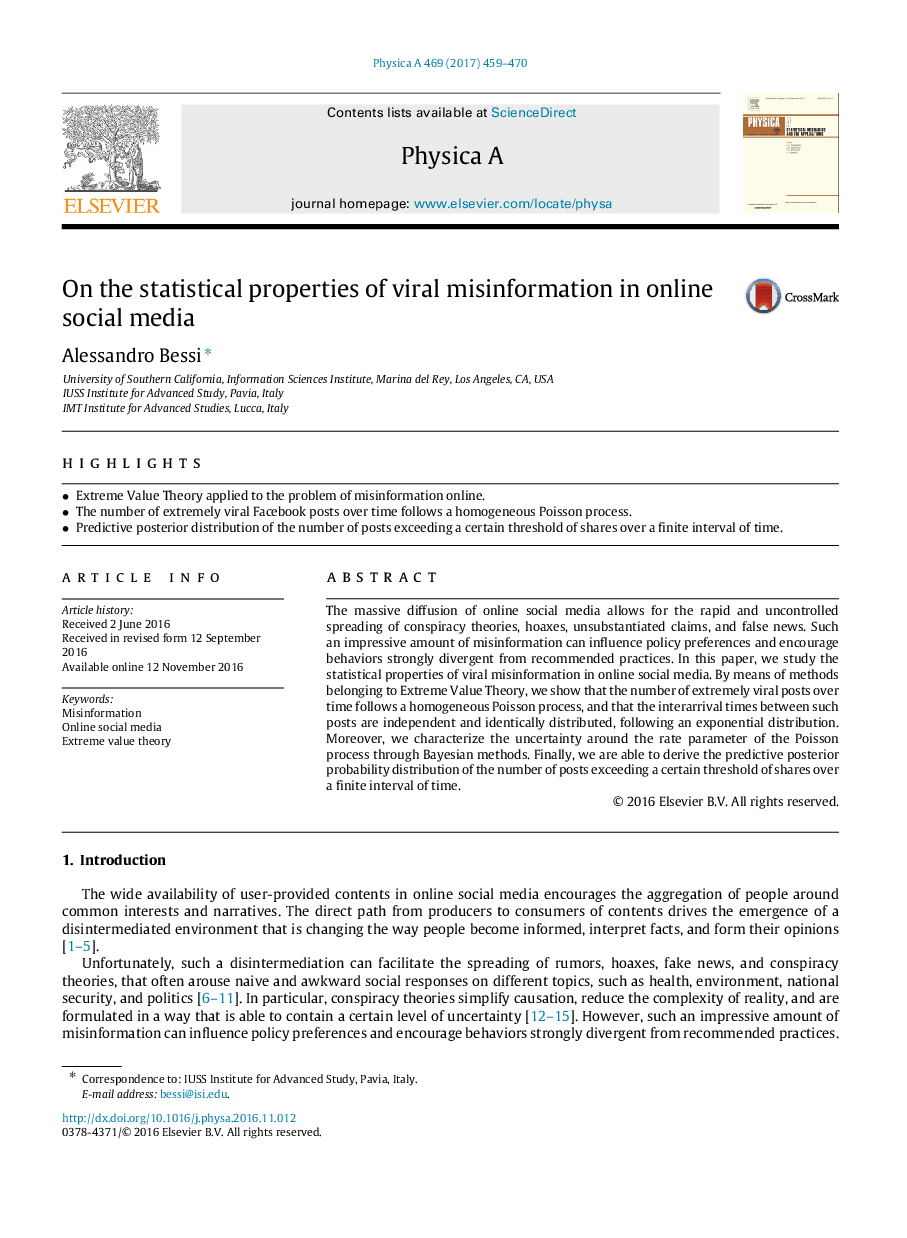| Article ID | Journal | Published Year | Pages | File Type |
|---|---|---|---|---|
| 5103364 | Physica A: Statistical Mechanics and its Applications | 2017 | 12 Pages |
Abstract
The massive diffusion of online social media allows for the rapid and uncontrolled spreading of conspiracy theories, hoaxes, unsubstantiated claims, and false news. Such an impressive amount of misinformation can influence policy preferences and encourage behaviors strongly divergent from recommended practices. In this paper, we study the statistical properties of viral misinformation in online social media. By means of methods belonging to Extreme Value Theory, we show that the number of extremely viral posts over time follows a homogeneous Poisson process, and that the interarrival times between such posts are independent and identically distributed, following an exponential distribution. Moreover, we characterize the uncertainty around the rate parameter of the Poisson process through Bayesian methods. Finally, we are able to derive the predictive posterior probability distribution of the number of posts exceeding a certain threshold of shares over a finite interval of time.
Related Topics
Physical Sciences and Engineering
Mathematics
Mathematical Physics
Authors
Alessandro Bessi,
